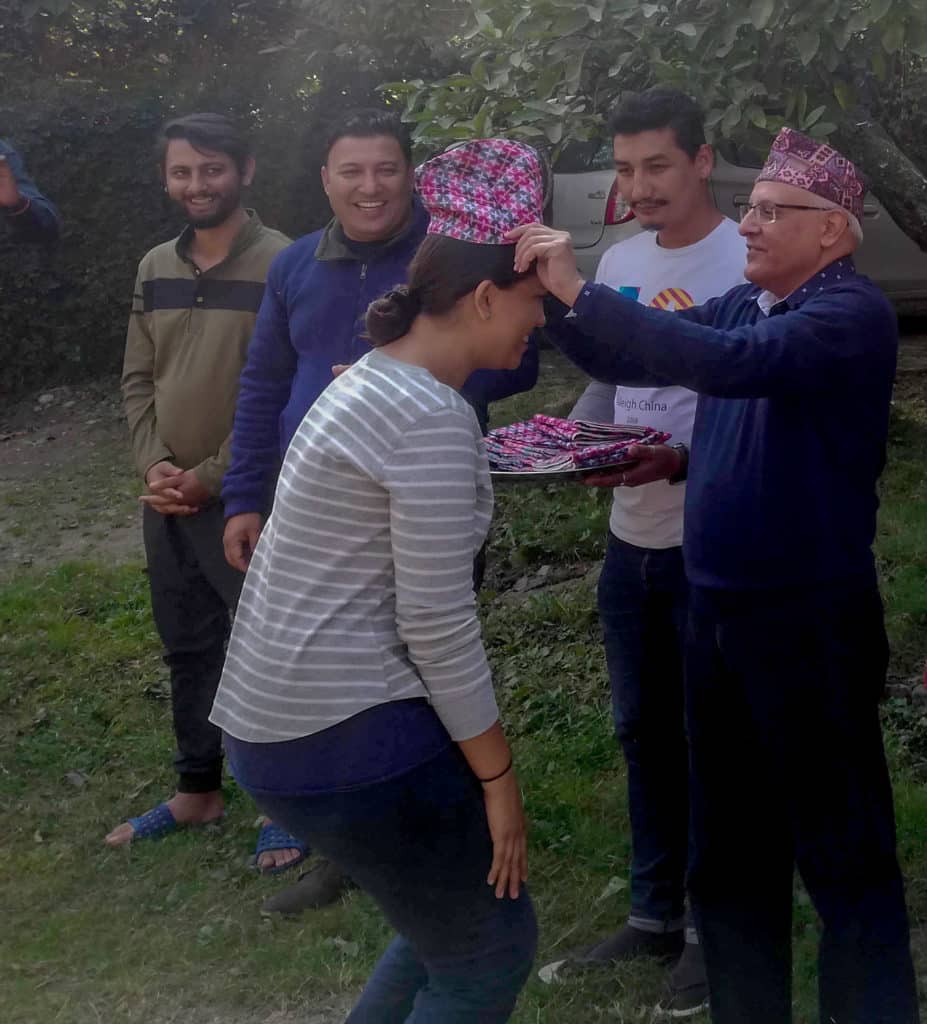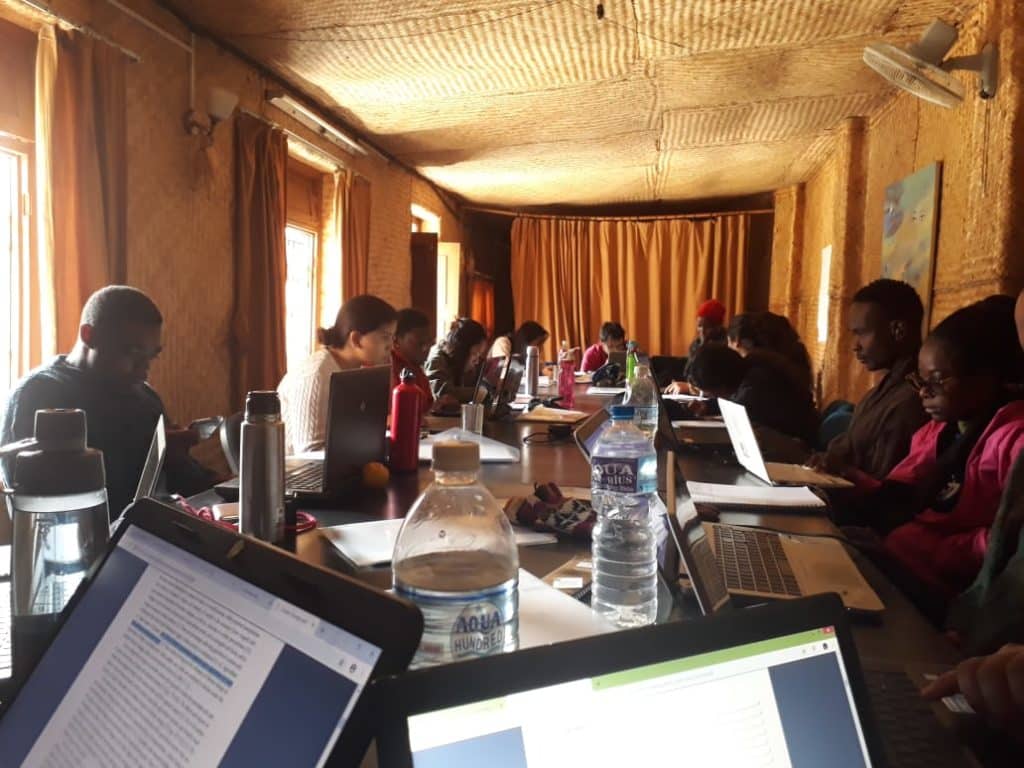Empowering rural communities of Makwanpur and Gorkha
Rural Communities of Makwanpur & Gorkha: Adapt with Climate Change
Our arrival in Nepal was met with a mixture of excitement, nervousness, and curiosity for us ExCEL participants (fellow Nepali volunteers were excited for an entirely different reason of course, as they were coming home after three months away). After initial training in Norway, followed by working for three months in Tanzania, all of us were eager to embark on the next stage of our project. As the sight of beautiful Himalayas welcomed us, we found ourselves re-energised and enthusiastic even before landing at the airport in Kathmandu, and we were all keen to explore and learn in the birthplace of Buddha.
In addition to our boosted enthusiasm, our fellow Nepali volunteers welcomed us with a traditional tika and khada as we reached the training centre, which gave a warm feeling in the cold weather. Guests are incarnations of gods – Atithi Devo Bhava, as they say here in Nepal – and this was fairly evident as our first morning started with another warm welcome from the country director of Raleigh Nepal, Ram Risal, with a traditional Dhaka topi and tika. He assured all of us that we would be provided with any necessary support from Raleigh Nepal, giving welcomed assurance to help us all adjust into a new place.

Having completed the first part of the project in Tanzania, we are about to begin the same process of identifying the behaviours of rural communities with a view to helping them adapt to the impacts of climate change. We will also be designing a campaign to encourage positive behaviours and promote change in the negative ones. We have gained a tremendous amount of experience from Tanzania which we believe will be instrumental in making our work here in Nepal more effective. The Tanzanian experience posed challenges in terms of identifying what which behaviours we could work on and what we needed to look for. Though we felt like we missed out a bit in gathering quality information to design an effective campaign, the first part of the project has taught us the ‘Do’ and ‘Don’ts’ of formative research which we will be mindful of as we carry out the process again in a different context.

Adapting to the Nepalese environment; the culture, food and cold weather, we have begun preparing for our upcoming project, where we will study the current climate change adaptive behaviours of rural Nepali communities in terms of natural resource management (NRM), disaster risk reduction (DRR), and livelihoods. We have already received sessions and training on first aid, finance, operations, and communications, along with information about the communities we will be placed in through our project partners Women Children and Environment Development Centre (WOCHEND); and Goreto Gorkha. Since the thematic area of our project will be based on climate change, we have also received a productive and informative session on climate change from an environmental expert, Mr. Raju Pandit Chettri, who is a member of the Climate Change Council for the government of Nepal.
The team is now engaged in designing an action plan to systematically carry out research which will identify how communities in the rural areas of Makwanpur and Gorkha are currently adapting to the changing climate and what the key drivers of their behaviours are. we are confident to move forward as we have already experienced in Tanzania of going through the process of finding out the key problems in climate change adaptation, identifying a common community behaviours in response to that, and analysing the key drivers in order to design a behaviour change campaign. We are also happy to welcome four new Nepalese participants from Raleigh Nepal Society and to include them in the process. We will focus on team building and sharing our experience and knowledge from the past three months, because together, we ExCEL.
Vivek Adhikari
Raleigh Nepal Society
Keep following our blog for future update on the ExCEL programme



